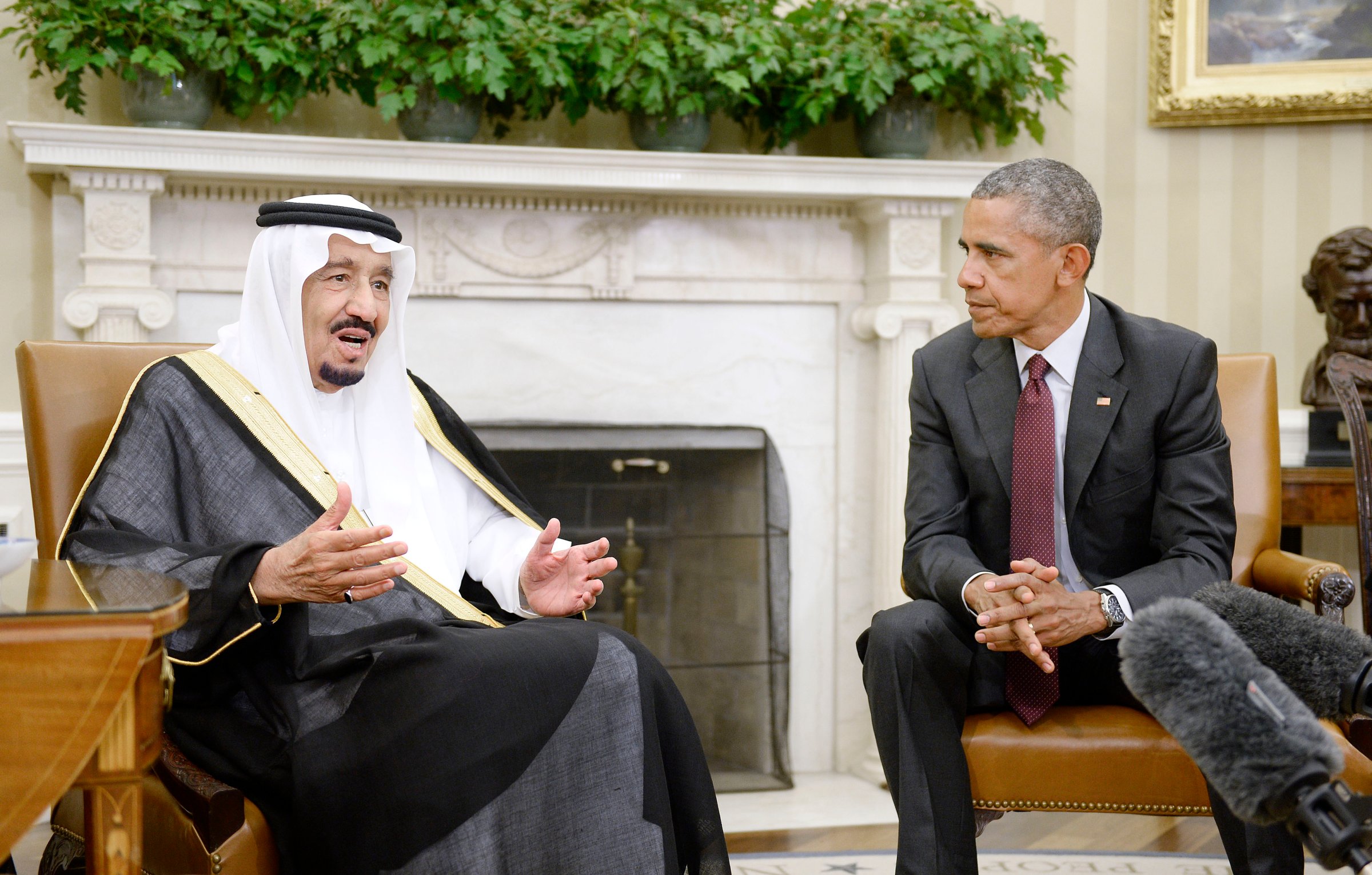
Emma Ashford is a research fellow at the Cato Institute.
When President Barack Obama visited the Gulf this week to meet with leaders from Saudi Arabia and other Gulf Cooperation Council countries, the big question on many people’s minds was whether he could successfully repair fraying relationships with allies he has publicly referred to as “free-riders.”
That was the wrong question. Instead, the President’s visit offered a chance to consider whether we should be repairing these ties, and whether our continuing support for Saudi Arabia’s increasingly assertive, destabilizing foreign policy is actually good for U.S. interests.
It cannot be denied that the U.S.-Saudi relationship has soured in recent years, with officials in both countries now openly admitting to cracks in the alliance. The declining relationship is most frequently attributed to a choice by the Obama administration to distance itself from Riyadh. Certainly, the obvious distaste with which the President has discussed Saudi Arabia’s archaic and repressive domestic politics—most recently his assertion that “a country cannot function in the modern world when it is repressing half of its population”—adds credence to this argument.
Yet the deterioration in the U.S.-Saudi relationship has been building for far longer, as many of the common interests which bound the two countries together have shifted or disappeared. Growing U.S. shale production and continued low oil prices have reduced American reliance on Saudi influence over the global oil market, while the collapse of the Soviet Union removed the need for a strong Middle Eastern partner to fight communism.
Even on the still-pertinent issue of counterterrorism, though there has been some effective coordination between the U.S. and Saudi Arabia since 2001, such cooperation has often been undermined by the Saudis’ continued spread of extreme forms of Islam, as well as the Kingdom’s unwillingness or inability to more effectively interdict its citizens’ financial support for terrorism.
Indeed, much of America’s perceived abandonment of the Saudi alliance can actually be better understood simply as the rational pursuit of our own strategic interests. It’s simply that—unlike during the Cold War—our interests today often differ from Saudi interests. The Iranian nuclear deal may have been less than ideal for Saudi Arabia, for example, yet it was a major diplomatic achievement for the U.S., helping to prevent the spread of nuclear proliferation in the region.
Likewise, Saudi Arabia had a vested interest in seeing the Iran-friendly Bashar al-Assad regime overthrown in Syria. The American refusal to intervene militarily in Syria doesn’t actually represent a rejection of Saudi Arabia, but rather a strategic calculation on the part of the Obama administration that such action would undermine American interests in the region.
Even with this growing strategic divide between the two countries, the U.S. often still reflexively supports many Saudi regional goals and actions. In the last year alone, the Obama administration has delivered a whopping $33 billion in weaponry to the Gulf. And the U.S. is providing logistical, intelligence and targeting support for the Saudi-led war in Yemen, even though that campaign is undermining a decade of U.S. counterterrorism work against al-Qaeda.
Unfortunately, Yemen is not unique; there are many other cases where America’s close association with Saudi Arabia may actually undermine our security. Indeed, Saudi Arabia’s main regional rival, Iran, is often accurately accused of playing a destabilizing role in the Middle East. Yet Saudi leaders’ inclination to view every foreign policy problem through the lens of this rivalry has in recent years led them to undertake similarly destabilizing actions.
These include not only the massive quantities of weapons they funneled to various rebel groups during the early years of the Syrian civil war, but also Saudi involvement in post-Arab Spring crises in Yemen, Bahrain and Egypt. More recently, the Saudi government—expressing concerns about Hezbollah—withdrew a $4 billion aid package from the government of Lebanon, already stressed by political dysfunction and the regional refugee crisis. In doing so, it ignored entreaties from U.S. officials to consider the high likelihood of regional instability should the Lebanese government fail.
Our typically close support of Saudi Arabia can even enable this bad behavior. For example, it is doubtful whether Saudi Arabia could have undertaken its disastrous Yemen intervention without U.S. technical support. By providing such support to the Kingdom, U.S. policymakers in many ways encourage the very Saudi foreign policy assertiveness—known as the Salman Doctrine—that is so damaging to regional stability, and therefore to U.S. interests.
Ultimately, our strategic differences with Riyadh will only continue to grow, a fact that the President’s valedictory tour cannot change. In the long-run, our close association with Saudi Arabia is actually likely to undermine America’s role in the Middle East, particularly if the Saudis continue their current destabilizing approach to regional politics. Rather than debating how to repair the relationship, therefore, America’s leaders would be better to ask whether it should be repaired at all.
More Must-Reads from TIME
- Cybersecurity Experts Are Sounding the Alarm on DOGE
- Meet the 2025 Women of the Year
- The Harsh Truth About Disability Inclusion
- Why Do More Young Adults Have Cancer?
- Colman Domingo Leads With Radical Love
- How to Get Better at Doing Things Alone
- Michelle Zauner Stares Down the Darkness
Contact us at letters@time.com